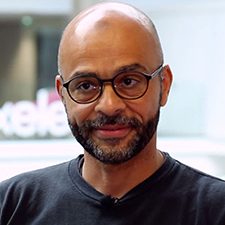Welcome to WaveCenter
The Key: Investor Mindset
I believe I’ve isolated the single entrenched mindset that currently holds society locked in the grips of Game A Capitalism and prevents a transition to a new and improved Game B ecosystem.
Changing this mistaken mindset among a critical mass of people is the key to releasing the latent energy of this movement which has been quietly developing for decades.
To illustrate this mindset in action, let’s consider the typical startup cycle. Someone has a great idea and gets a few people together to develop a prototype or MVP and some pitch material. Maybe they raise money from their friends and family to get through this period, or they do it in their spare time.
Either way, the next stop is angel investors for funds to build out the product, build a team and get some sales and marketing traction. Then, if everything is humming along and their business is looking lucrative enough, the VCs will come in with massive capital to scale up and push it out to an exit strategy like an acquisition or an IPO.
Once the business is profitable and has a healthy market cap, a handful of founders and the financiers walk away with the lion’s share of the wealth gains, while the people employed by the company (who actually built the company and make it work) end up with jobs that keep them afloat and hopefully lead to bigger and better jobs in the future.
This fundamental model at the root of the incumbent Game A system has one hidden assumption that everyone takes for granted: Capital precedes labor.
While startup founders and mom-and-pop shop owners invest massive amounts of time just to get their ‘babies’ to viability, that’s not what I mean by ‘labor’.
I’m talking about the people who have to do the complicated, repetitive, frustrating work of actually making a business go. Those people don’t invest their time. They get put on the payroll and get direct deposits every other Friday like clockwork.
So if you want to build a business that requires the focused attention of a large number of people, conventional wisdom holds that the main way to do it is to raise enough funding to pay people to focus their attention on your project long enough to get it off the ground.
Consider the alternative — that a large group of people all work for no cash, but only for stock in the company. It’s a ridiculous notion, right?
So everyone agrees and assumes that the way to start a business is:
Step 1: Raise capital investment
Step 2: Use that investment to hire people to do the work
That’s just the way it is. Capital is necessary to launch substantial businesses, so capitalists continue to control the game.
What’s lost in all this is that what is actually building the company is the people. That’s where the real value is — in their focused, coordinated attention to solving problems and building something together.
Capital is just the instrument that allows the entrepreneur or corporation to harness people’s attention, like a lens focusing light on a single point.
But what if there was a way to focus people’s attention other than cash on the barrelhead? What if there was a way to allow people to invest their time in the form of focused attention and collaborative efforts en masse?
If a critical mass of people focused their time and attention in a coordinated fashion on developing a project together without the expectation of compensation in the short-term, there’s no reason they couldn’t build a product just as cool and robust as VC-backed companies.
In fact, they would probably be even more efficient and creative considering that they have skin in the game and huge upside potential if they succeed.
The dynamic at the heart of WaveCenter is the ability to allow people to invest a modest amount of time into a project in a highly structured way (think crowdsourcing or swarm intelligence) and earn ownership in the organization based on their contributions.
It’s actually pretty simple: Provide a way for large numbers of people to safely invest reasonable amounts of sweat equity into a project and cut out the financial middlemen.
Unless we find a way to accomplish this, there is no way out of the Game A matrix.
Let’s Create Reality Together










